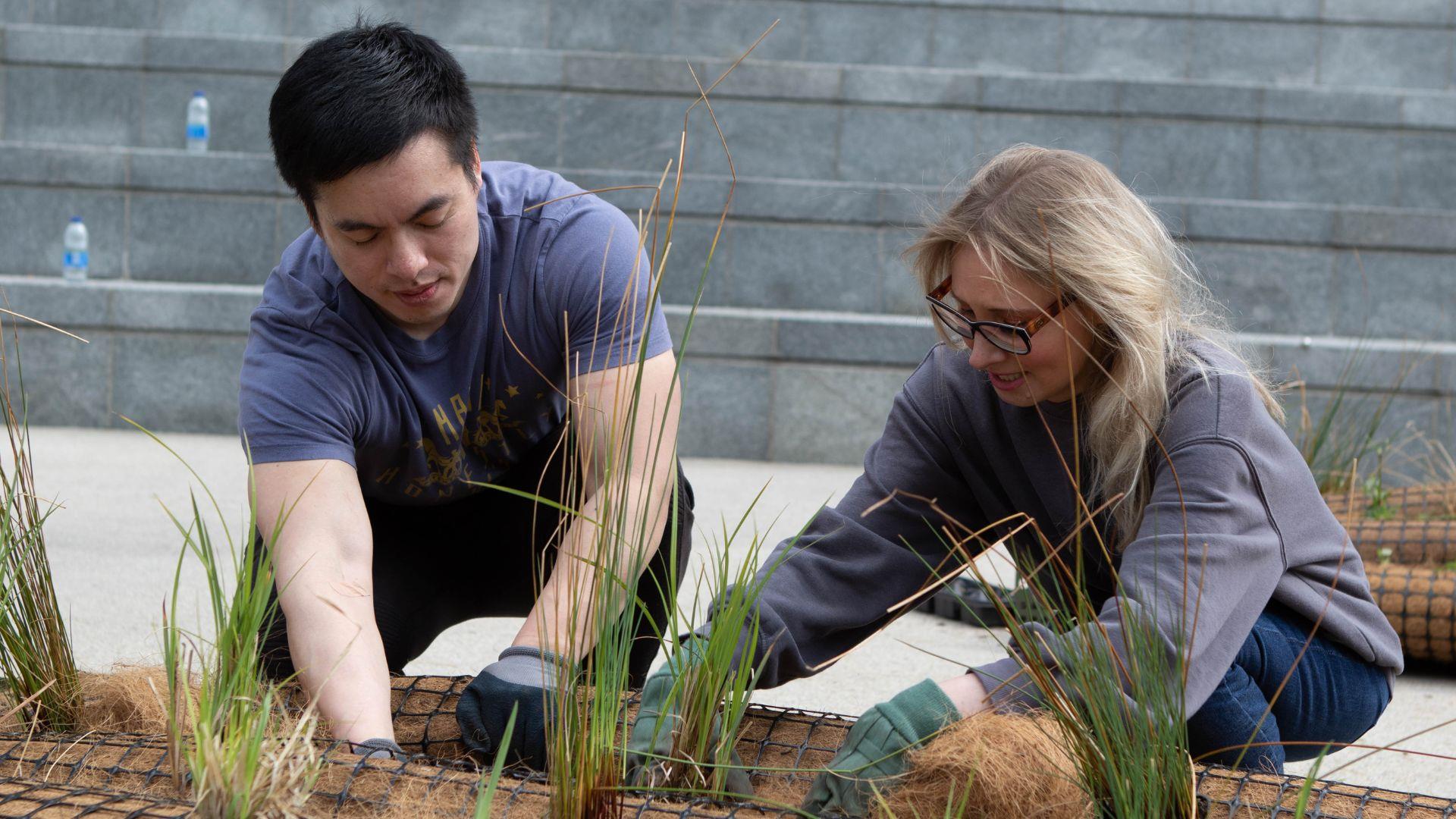

- Invest
- Business Support
- Business Improvement District
- Meet
- Sustainable Future
- Reading University
- About Us
- News
 Altitude Angel
Altitude Angel Reed planting
Reed planting
You are here: Sustainable Future > Sustainable case studies
Searching for something...
-
Office Space
-
Meet Reading
-
Accommodation
Office Space search
Meeting Space Search
Accommodation Search
There are many Reading orgnisations and businesses investing in making Reading a greener and more sustainable place to live, work and do business.
- The University of Reading has been named Sustainable University of the Year 2025 in The Times and The Sunday Times Good University Guide 2025. The Guide said Reading had “made impressive headway towards its ambition of being one of the greenest universities in the world”.
- The world’s largest and longest network of drone superhighways has been given the go-ahead by the UK Government, based on technology created in Reading by Altitude Angel.
- Reading Climate Change Action Network are spearheading Reading's aim be a climate-resilient town with net zero carbon emissions by 2030.
- The ‘Green BID’ initiative delivered by REDA and Reading BID brought together a range of partners from the public and private sector to question the impact of the town centre on carbon emissions and what could be done working with the business community to contribute to their reduction and race to net zero.
- This case study outlines REDA’s place-based contribution to Reading’s carbon reduction, cross cutting the themes of the Climate Emergency Strategy originating from REDA’s vision to be the first ‘Green’ Bid in the country back in 2021
- The new community-owned Reading Hydro CBS generates power from the current of The Thames via two brand-new Archimedes Screws. On the opposite bank, Thames Lido's electricity needs are 100% powered by the renewable energy from the Thames.
- Reading University and Reading Football Club have entered into a new partnership to help the football club reduce its carbon footprint, sharing the expertise of the University's sustainability team.
- Reading BID has joined with the Canals and Rivers Trust, Environment Agency and Oracle Shopping Centre to plant reed beds along the Kennet & Avon Canal in the heart of Reading.
- Reading UK, the University of Reading, Barton Willmore and Reading Borough Council have devised a 2050 Vision for Reading as a future smart and sustainable city.
- Reading SMEs are benefitting from Low Carbon Workspace Grants. Organisations such as Communications Solutions and Caversham Golf Club have benfitted from grants to helps SMEs reduce carbon emissions, lower their environmental impact and their monthly overheads. • Match funded grants up to £5,000. Grants are awarded on a 2:1 ratio to cover a third of the cost.
- Professor Ed Hawkins at the University of Reading designed the climate stripes graphic which is being used around the world to represent global warming scenarios.

© Visit Reading 2025. All Rights Reserved





